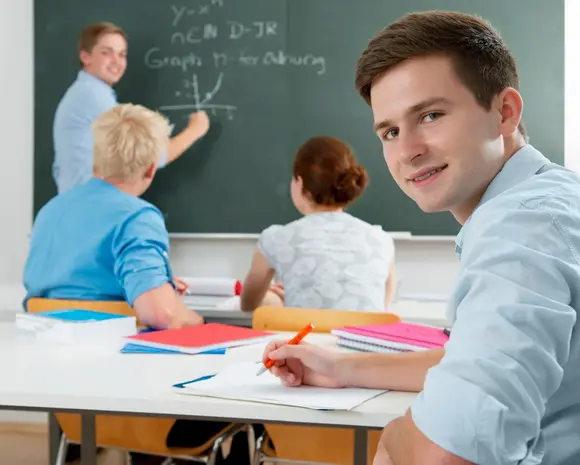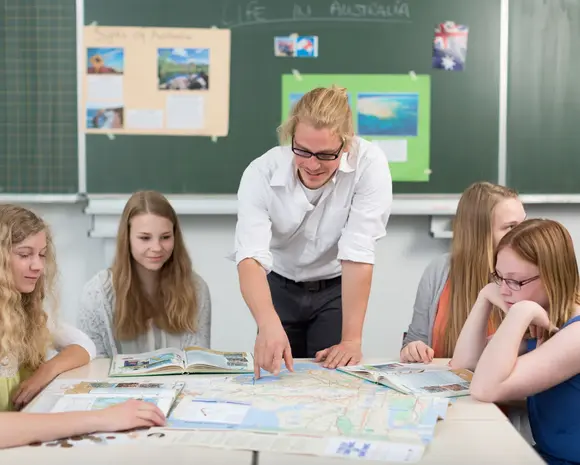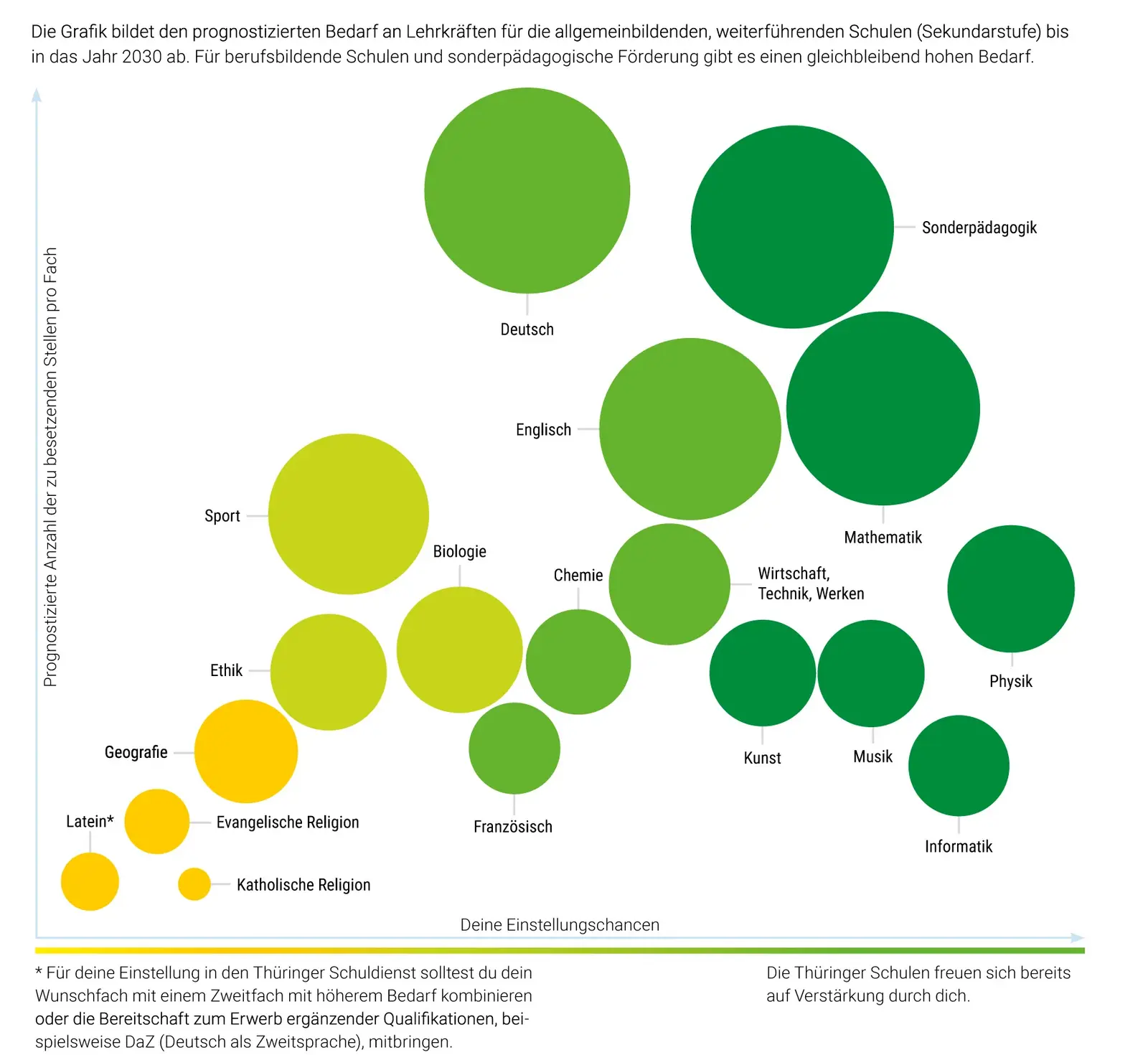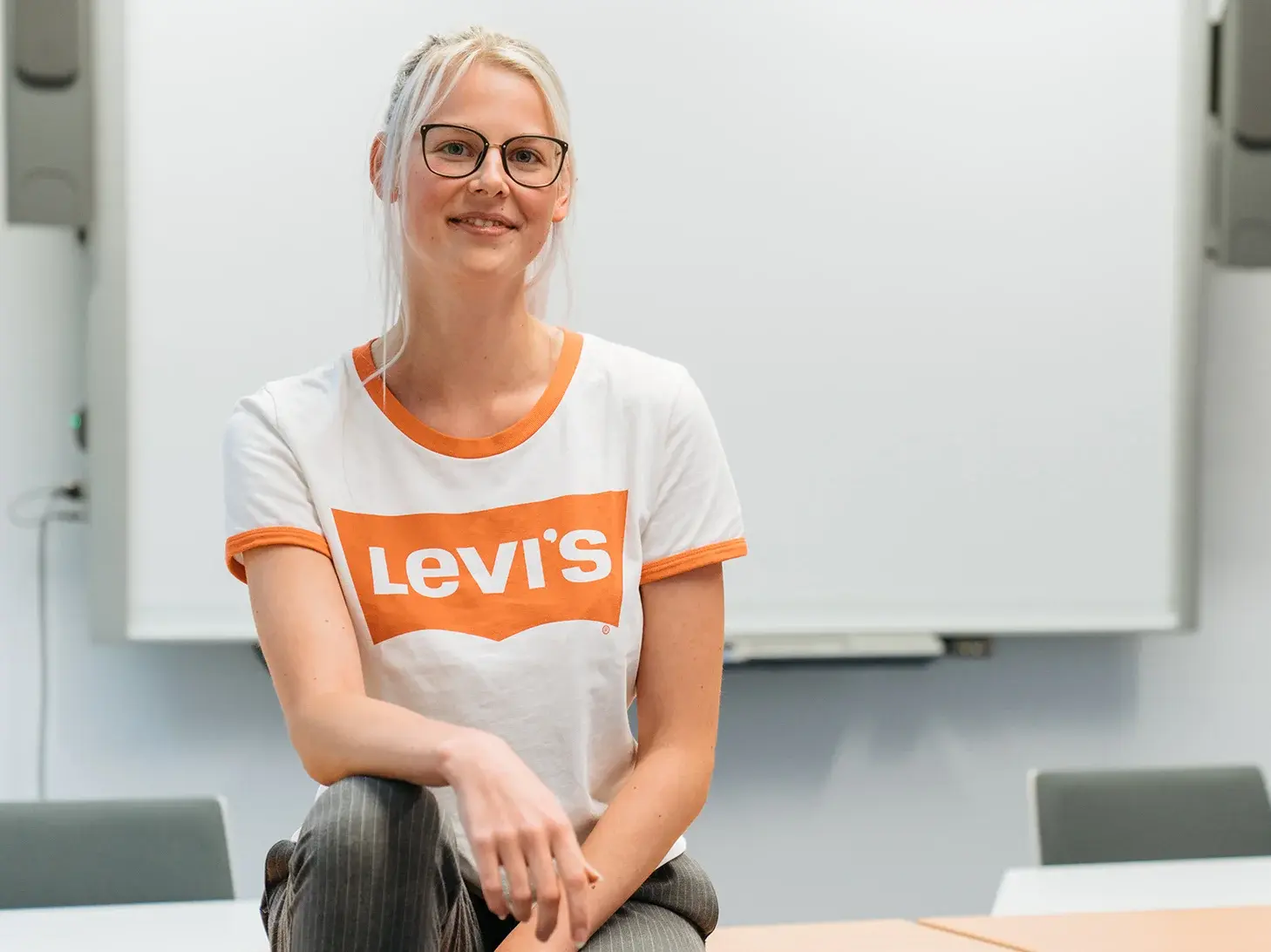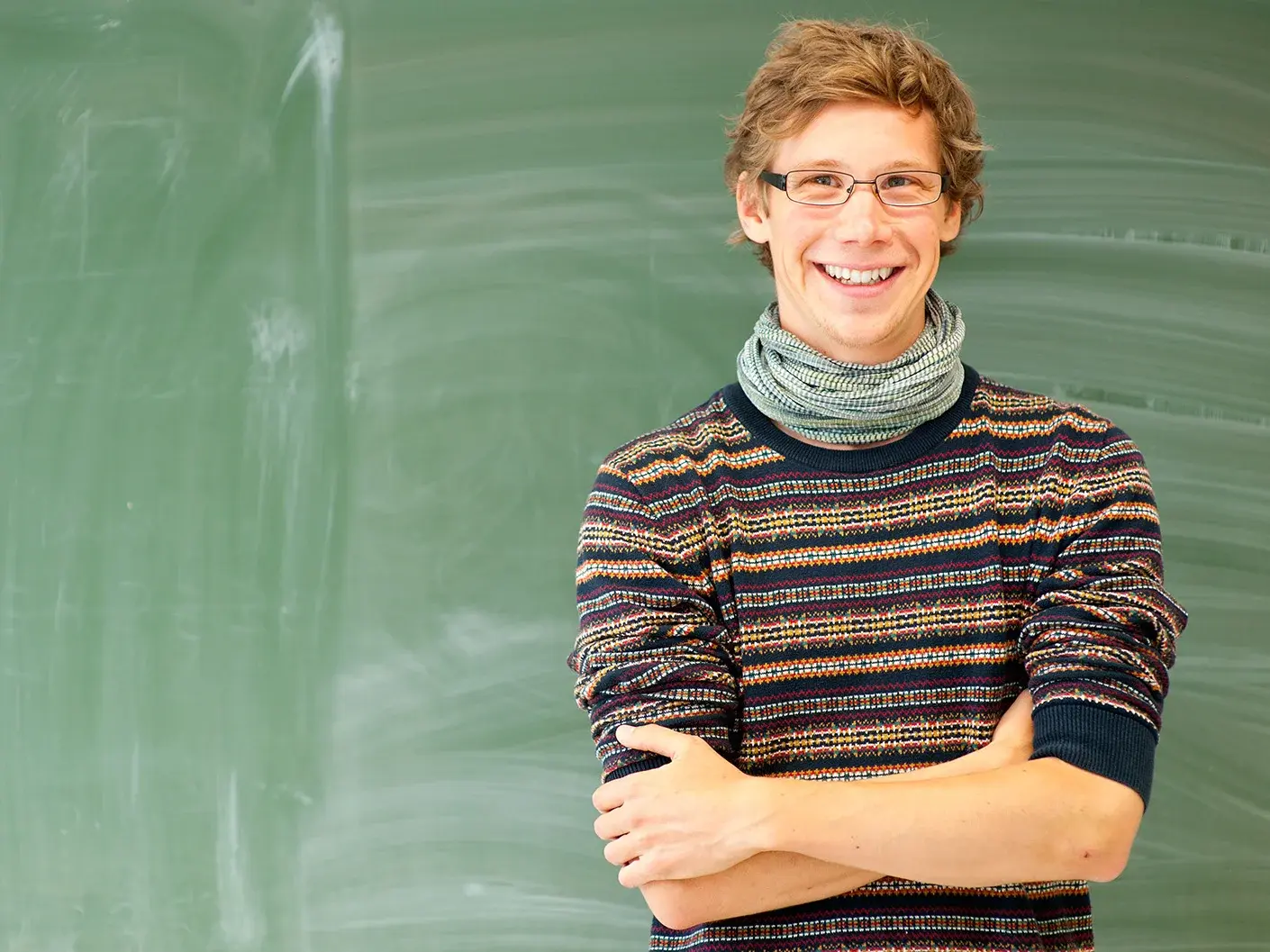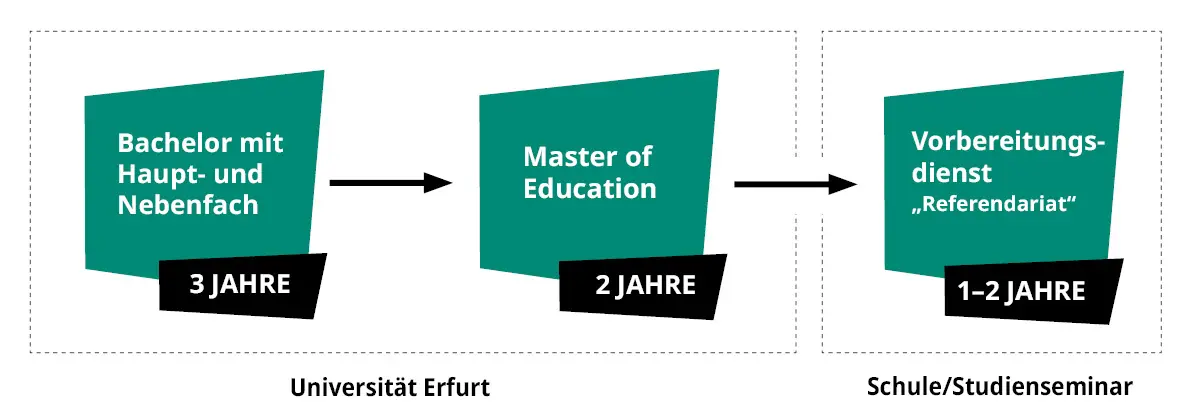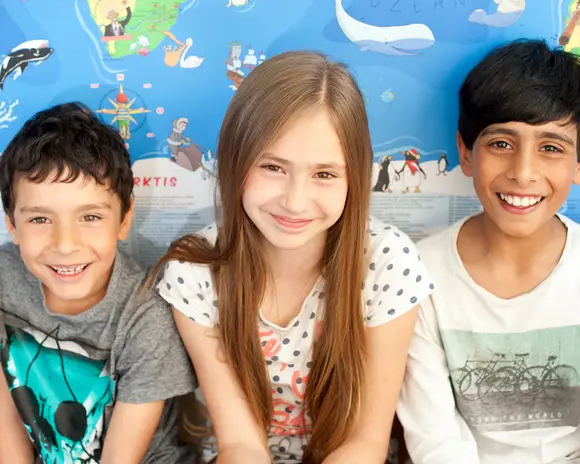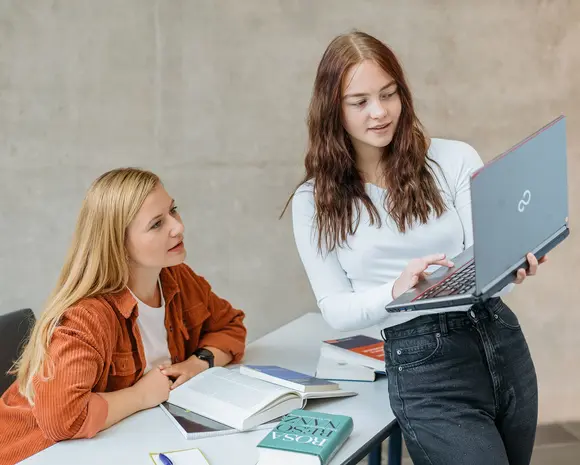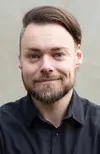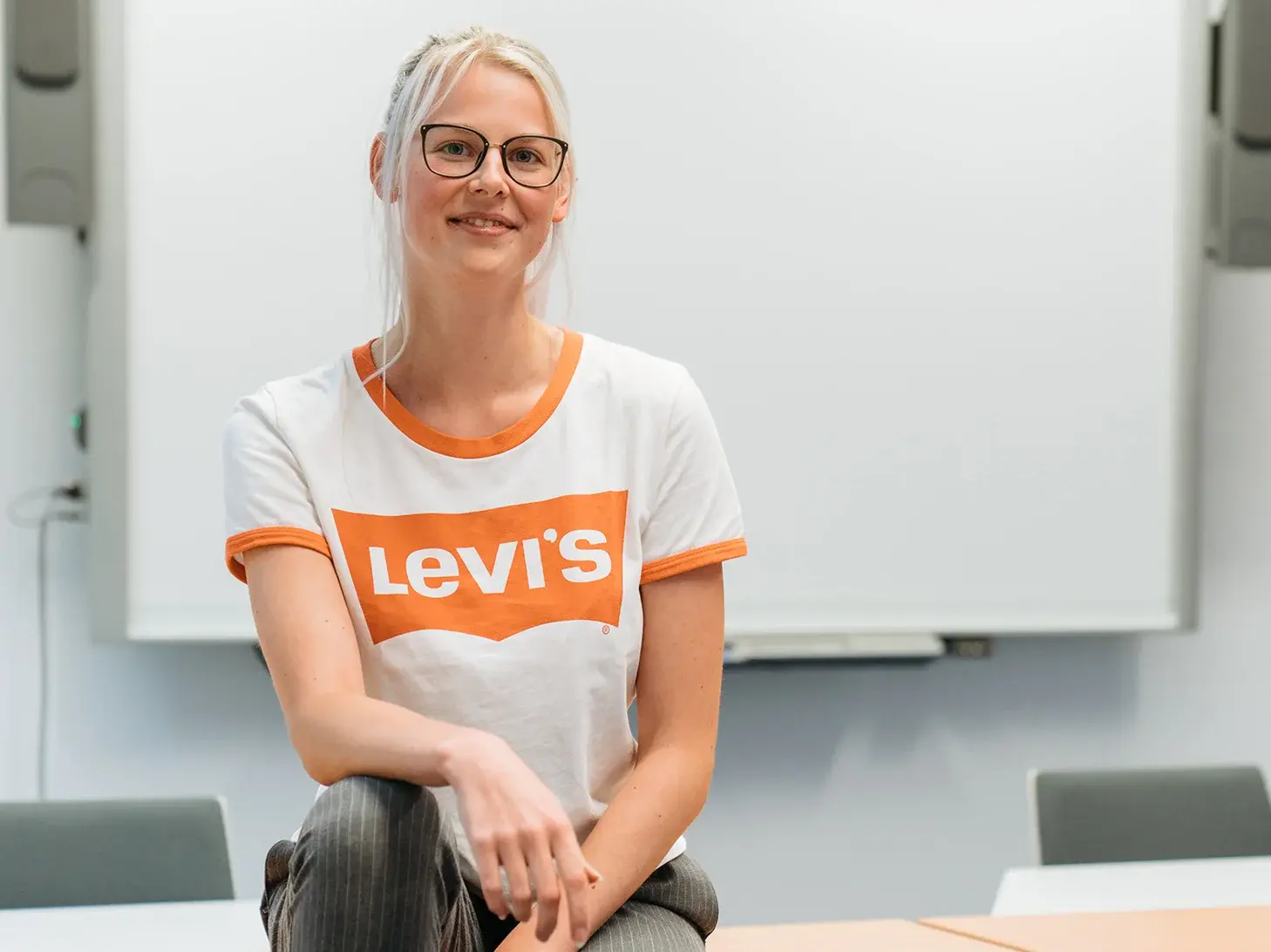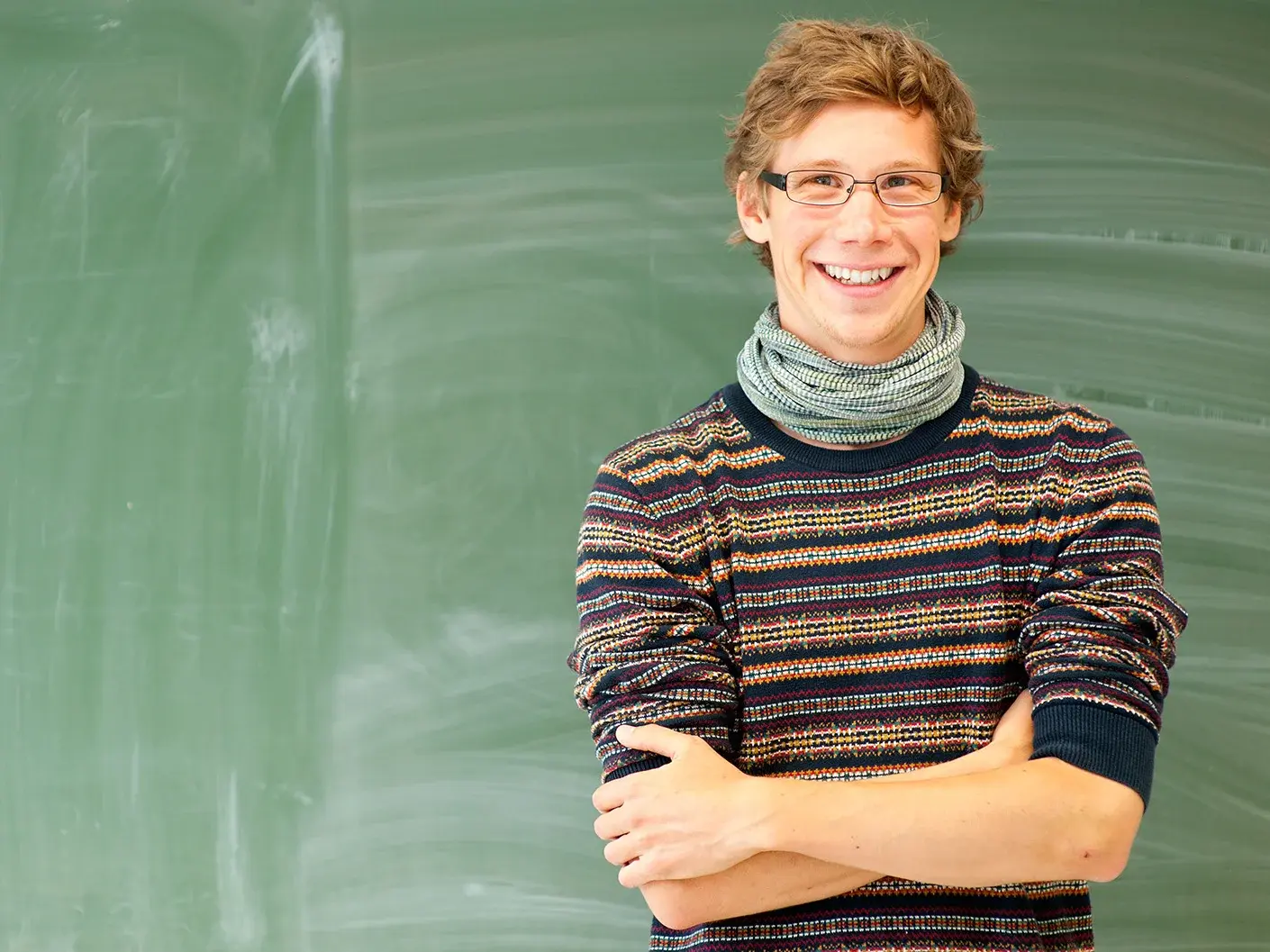At the University of Erfurt you can take up teacher training for the following types of school. Prospective teachers study the subjects they want to teach later and are also taught pedagogical knowledge. Teacher training takes place in the Bachelor-Master study system (first the Bachelor's degree and then the Master's degree). The degree is equivalent to the 1st state examination taken at other universities. The degree is followed by the preparatory service (in other countries the usual term is "Referendariat"), which ends with the 2nd state examination. You can find all the information on the structure and sequence of studies as well as the appropriate subject combinations on the pages for the respective school form.
Why study teaching profession at the University of Erfurt?
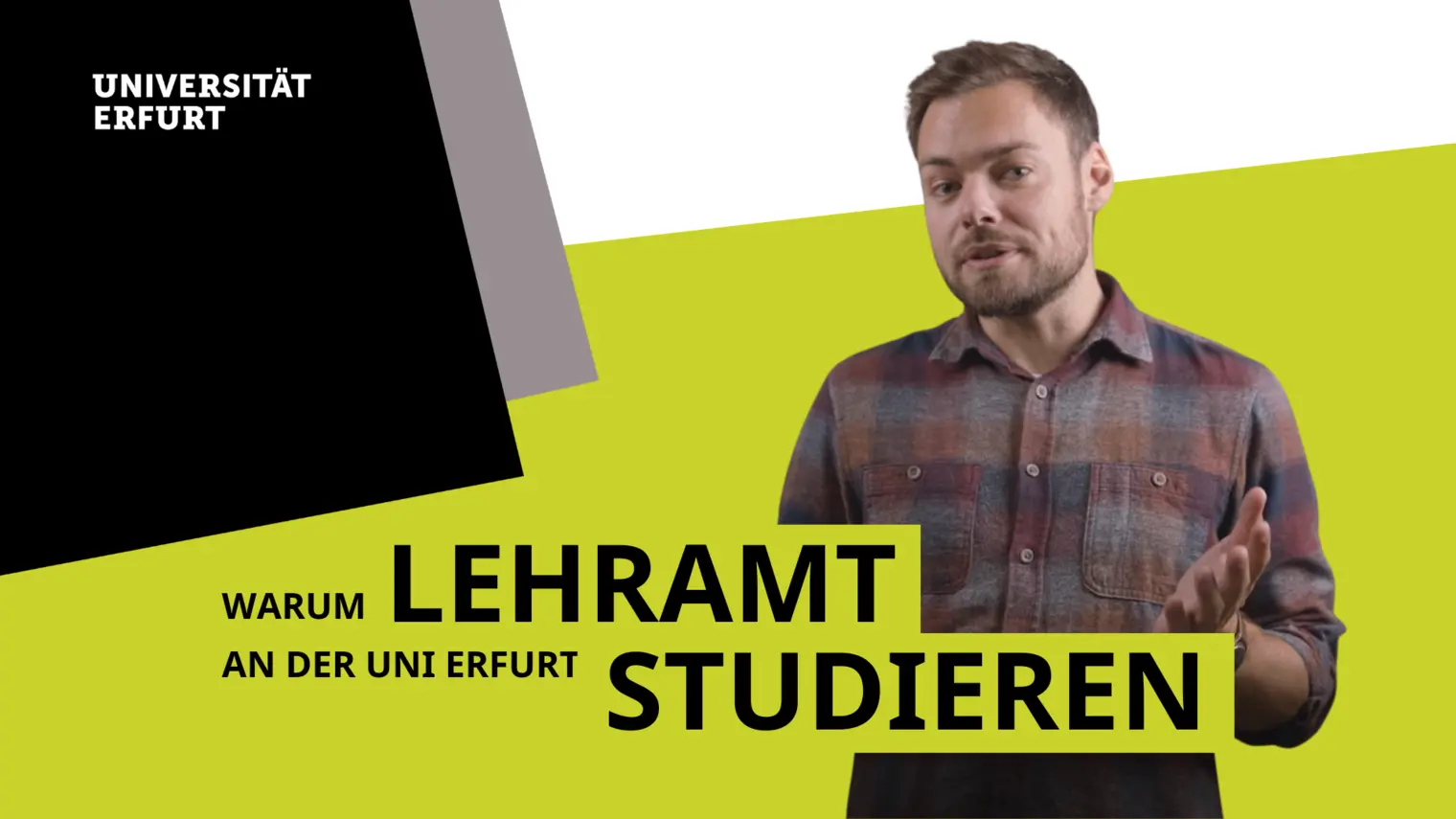
Please note: Once you watch the video, data will be transmitted to Youtube/Google. For more information, see Google Privacy.
Which subjects and which type of school does the programme prepare students for?
| Subject | Teaching | Vocational Schools | Special Needs Pedagogy | Primary schools | Secondary schools |
|---|---|---|---|---|---|
| English and American Studies | English | x | x | x | x* |
| Protestant Religion | Protestant Religion | x | x | x | x |
| Special Education and Inclusive Pedagogy | German, Maths or Social Studies and Science | x | |||
| German Studies | German | x | x | x | x* |
| History | History | x | x | ||
| Catholic Religion | Catholic Religion | x | x | x | x |
| Arts | Arts | x | x | x* | |
| Mathematics | Mathematics | x | x | x | x* |
| Music | Music | x | x | x* | |
| Philosophy | Ethics | x | x | x | x |
| Primary Education | German and/or Mathematics, Social Studies and Science and/or Educational Garden | x | |||
| Religious Studies | Ethics | x | x | x | x |
| Romance Studies | French | x | x | x | x* |
| Slavic Studies | Russian | x | x | x* | |
| Physical Education | Sport | x | x | x | x* |
| Economics, Law and Social Sciences | Social Studies | x | x | x | |
| Technology | Handicrafts/Technology etc. | x | x | x* |
You want to become a vocational school teacher?
In order to be employed as a teacher at a vocational school, a vocational specialisation (Berufsbildendes Fach) and a general education subject are required.
You must already have a degree in one of the following vocational specialisations:
- Civil engineering
- Electrical engineering
- Metal technology
- Health
- Nursing
- Personal hygiene
- Social pedagogy
In the event that you only have the vocational specialisation but not the prerequisites for a general education subject, you can catch up on the subject-related fundamentals for one of the following general education subjects at Bachelor's level parallel to the Master's programme Master of Education - Vocational Schools:
- English
- Protestant Religion Education
- German
- French
- Catholic Religion Education
- Mathematics
- Ethics
- Social studies
Further information on the vocational school teacher training programme
Do you want to become a primary school teacher?
In the Bachelor's degree programme, you combine the major subject Primary Education with a teaching-relevant minor subject of your choice. With the subjects you choose your teaching subjects. You follow the Bachelor's programme with the Master of Education Primary schools.
You can train for the following teaching subjects:
- German
- English
- Ethics
- Protestant Religion Education
- French
- Arts
- Catholic Religion Education
- Mathematics
- Music
- Russian
- Social Studies and Science
- Educational garden
- Sport
- Handicrafts
Further information on the primary school teacher training programme
Do you want to become a Special Needs Pedagogy teacher?
In the Bachelor's degree programme, you combine the main subject Special Education and Inclusive Pedagogy with a minor subject relevant to teaching. With the subjects you choose your teaching subjects. You follow the Bachelor's programme with the Master of Education Special Education and Inclusive Pedagogy.
You can train for the following teaching subjects:
- German
- English
- Ethics
- Protestant Religion Education
- French
- History
- Arts
- Catholic Religion Education
- Mathematics
- Music
- Russian
- Social Studies and Science
- Social Studies
- Sport
- Handicrafts
Further information on the teaching profession Special Needs Pedagogy programme
You want to teach at a secondary schools or at a community school (lower secondary level)?
In the Bachelor's degree programme, you combine a major subject relevant to teaching with a minor subject of your choice relevant to teaching. With the subjects you choose your teaching subjects. You follow the Bachelor's programme with the Master of Education secondary schools.
You can train for the following teaching subjects:
- German
- English
- Ethics
- Protestant Religion Education
- French
- History
- Arts
- Catholic Religion Education
- Mathematics
- Music
- Russian
- Social Studies and Science
- Sport
- Economics and Technology (for Secondary Schools)
Further information on the regular school teacher training programme
The University of Erfurt is launching the dual study programme for secondary school teaching in the winter semester 24/25. You can study the subjects German, Maths, English or Technology on a dual study programme.
Test yourself: Am I suited for the teaching profession? Does the degree programme suit me?
Would you like to study to become a teacher? Take the opportunity to find out about the requirements of the study programme and the appointment as well as your aptitude and inclinations. Self-test: There are a number of questionnaires or ways of exploring the professional field of a teacher that are available online and can help you clarify the following questions.
Our subject selection questiomaire will help you answer this question. In it, you have the opportunity to directly compare two subjects that come into consideration for you with regard to their advantages and disadvantages.
Our personality questionnaire for prospective students will help you answer this question. Because: Certain personality traits form a solid basis for academic and professional success among teachers. With the help of the questionnaire and the evaluation, you can see to what extent your personality matches these personality traits that are favourable for the teaching profession.
Our "SeLF" will help you answer this question. The self-exploration procedure is not a personality test, but would like to encourage you to reflect on the teaching profession. Reflection is stimulated by 16 short films in which central tasks within the profession are addressed.
FIT-L (R) - FIT for the Teaching Profession will help you answer the question. This questionnaire allows interested persons to get a concrete picture of the requirements of the teaching profession. By comparing it with one's own expectations and prerequisites, a differentiated judgement of personal aptitude and potential development needs is possible.
General information on the individual test options within the framework of our project "Teaching Talent Center" can be found at:
The key to the teaching profession - the preparatory service
At the University of Erfurt you study the Bachelor's degree with a major and minor subject as well as the Master's degree in Education. After graduation, the pedagogical-practical training takes place at state teacher training colleges and schools in relation to the type of school.
The final step: How does the preparatory service work?
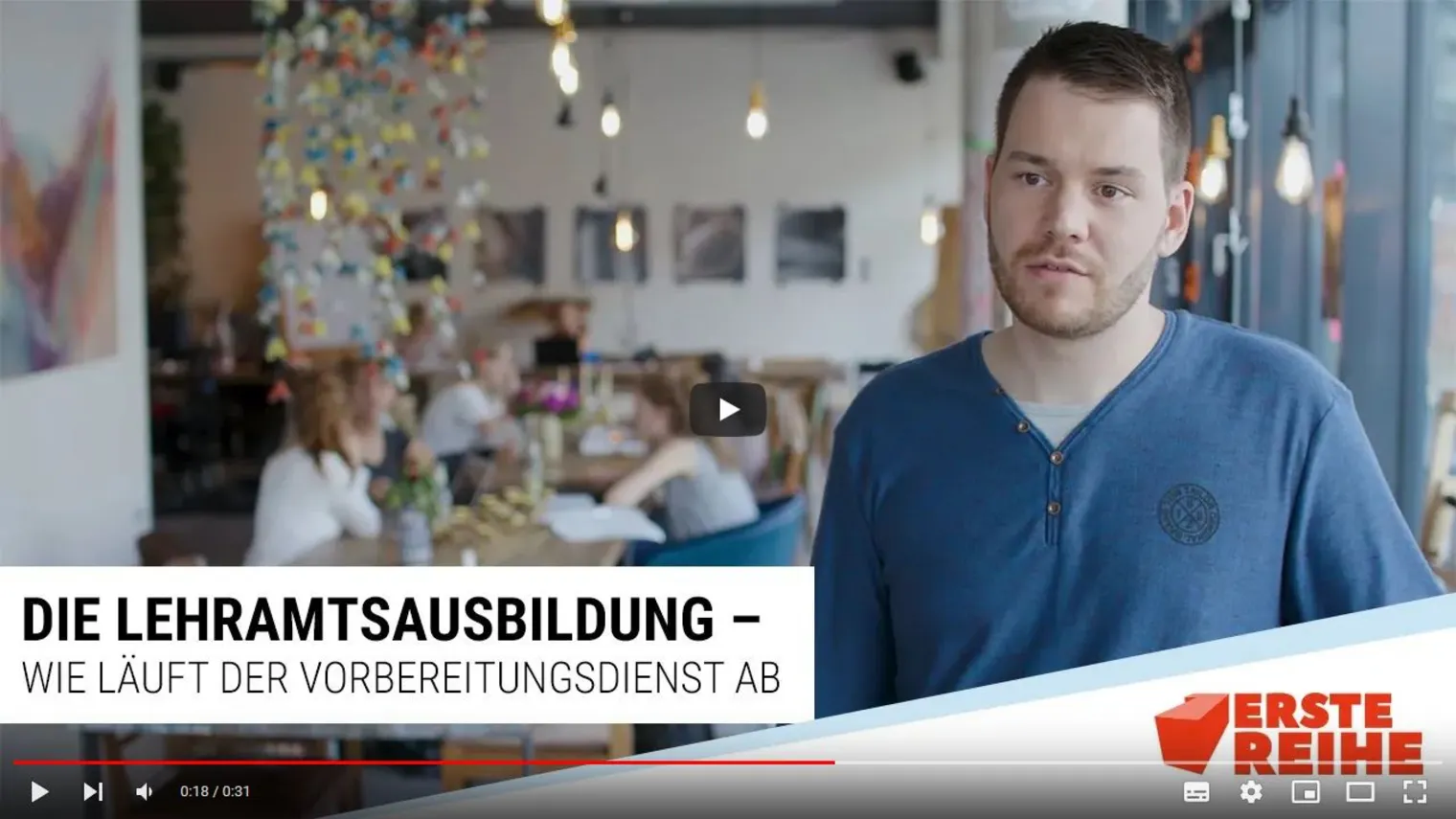
Please note: Once you watch the video, data will be transmitted to Youtube/Google. For more information, see Google Privacy.
- The best career prospects and recruitment opportunities:
Thuringia is recruiting more teachers in the coming years than ever before. This applies to all subjects and school types. - The best conditions:
Teachers are hired for an unlimited period and are civil servants. - Become a teacher for the greatest talents:
Thuringian pupils are always at the top of national and international school competitions. - Our curriculum is popular internationally:
The majority of German schools abroad worldwide teach according to the Thuringian curriculum.
FAQ Teacher Training
The teaching subjects that can be chosen differ depending on the type of school. You can find an overview of this in the table on the website Studying teaching profession at the University of Erfurt.
At the University of Erfurt, for example, you can train for the following teaching subjects:
- German
- English
- Ethics
- Protestant Religion Education
- French
- History
- Catholic Religion Education
- Arts
- Mathematics
- Music
- Russian
- Social Studies and Science
- Educational garden
- Sport
- Social studies
- Handicrafts/Technology (for Secondary Schools)
To increase your chances on the job market, it can be advantageous to choose at least one so-called deficiency subject. This includes especially the STEM subjects, such as Mathematics and Technology (for Secondary Schools).
The school levels in Thuringia are:
- the primary level, which comprises grades 1 to 4,
- the lower secondary level, which comprises grades 5 to 9 or 10 of the general education schools,
- the upper secondary level, which comprises the one-year introductory phase and the two-year qualification phase (gymnasiale Oberstufe), the vocational schools and the college.
A teacher's task is to professionally plan, design and evaluate lessons in the respective subject. In doing so, they work closely with colleagues of the same grade level or with teachers who teach the same subject.
Another important part of the teaching profession is class management, which is closely linked to parental work. This not only entails tasks such as organising parents' evenings or conducting parents' meetings, but also responsibility for class trips, hiking days and special projects.
In order to be able to ensure the good quality of their teaching in the long term, teachers naturally also take part in in-service training on an ongoing basis.
After a special further training for managers, a teacher can, for example, apply for a so-called function position as head teacher . They can also become a subject advisor for a subject. This person organises in-service training within the school, regionally or centrally.
The chances of teachers being hired in Thuringia are currently very good.
In order to increase mobility in training, the resolution of the Standing Conference of the Ministers of Education and Cultural Affairs of the Länder (KMK) of 7 March 2013 created joint implementation guidelines for the adaptation of regulations and procedures for recruitment to preparatory and teaching posts as well as for the recognition of study and examination achievements in teacher training courses (see KMK).
However, since the individual Länder have Länder-specific regulations for teacher training, it is not possible to make a general statement on recognition here.
A valid higher education entrance qualification, usually the Allgemeine Hochschulreife (general higher education entrance qualification), is required for the undergraduate Bachelor's degree programme. Bundled information on the general admission requirements can be found on our website on admission requirements.
The Bachelor's degree subjects Special Education and Inclusive Pedagogy (teaching profession Special Needs Pedagogy) and Primary Education (teaching profession Primary schools) are subject to limited admission (NC).
For the subjects Arts, Music and Sport , proof of a successful aptitude test is required .
In principle, it is possible to complete both the Bachelor's and the Master's programme on a part-time basis. In this case, as a rule only half of the regular credit points/ECTS are acquired in a part-time semester. The study programme is extended accordingly.
Please note: The courses to be attended (lectures, seminars, etc.) in a part-time programme are not specially arranged for the evening or the weekend, but result from the regular, current course offerings of the respective degree programme.
You can decide on a semester-by-semester basis whether you wish to continue studying part-time or full-time (application for part-time study).
Please note that students studying part-time do not receive BAföG.
For the Bachelor's degree subjects Special Education and Inclusive Pedagogy (teaching profession for special education) and Primary Education (teaching profession for primary schools) with restricted admission, you can apply online at the University of Erfurt from 1 May to 15 July each year. Once you have been admitted, you can enrol.
You can enrol directly for a combination of two admission-free Bachelor's programmes from 1 May to 15 September each year.
Teacher training in Thuringia
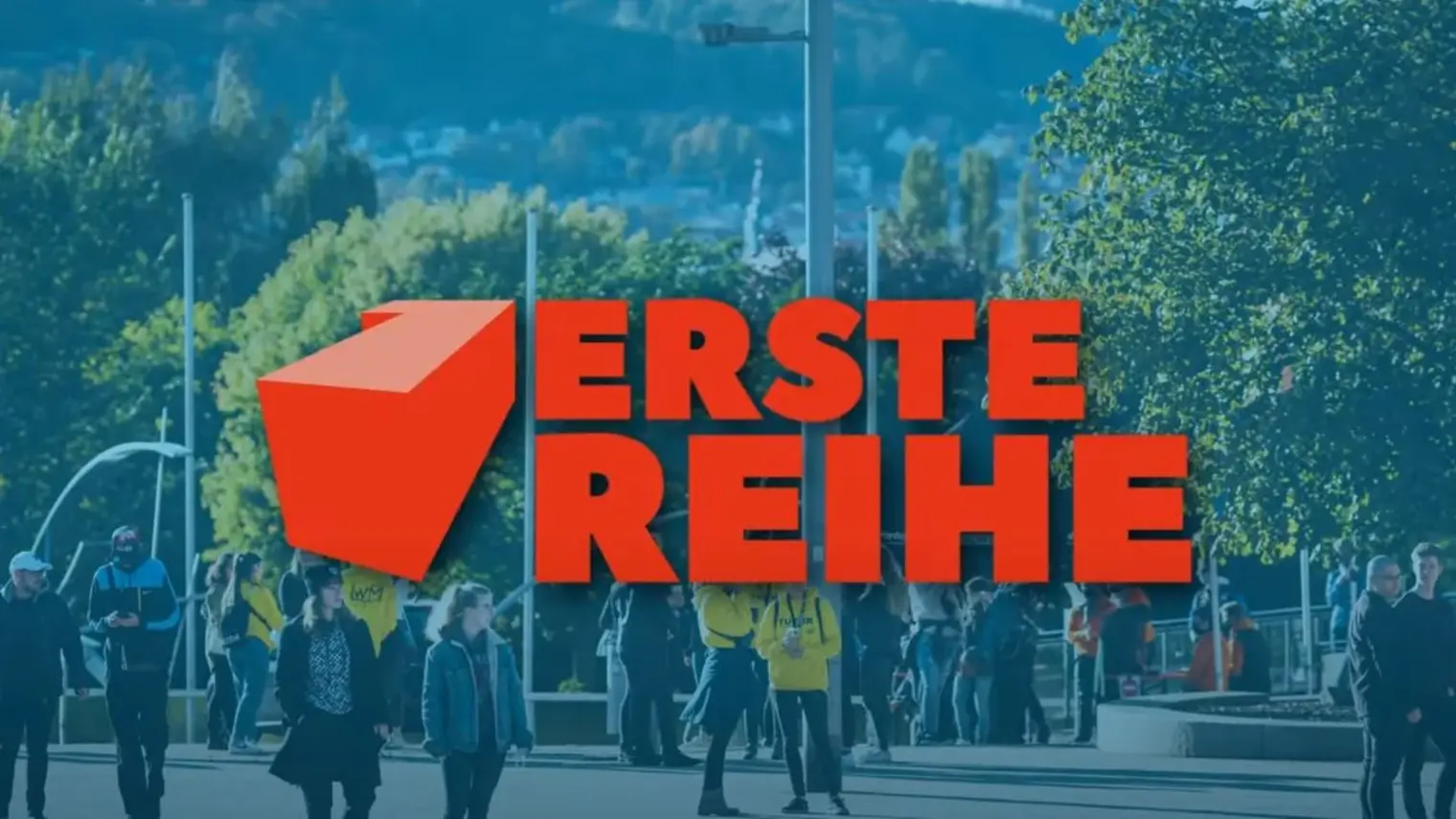
Please note: Once you watch the video, data will be transmitted to Youtube/Google. For more information, see Google Privacy.
